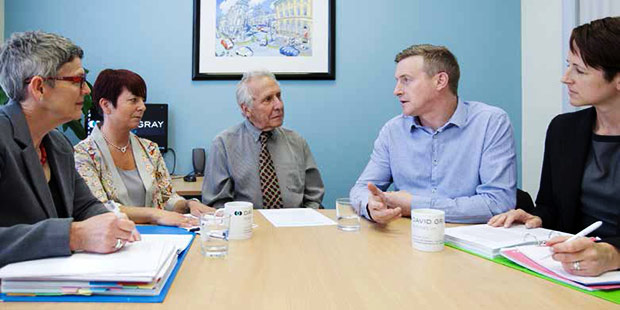What is Family Arbitration?

Arbitration offers a different way of resolving disputes. It is a form of dispute resolution where both parties to the dispute agree to arbitrate and the decision of the Arbitrator is contractually binding. An Arbitrator is in effect a private Judge who can make decisions about family, financial or property disputes as well as children disputes to which the parties agree to be bound in advance of the decision. Rather than a Judgment (like you would be given in court), you are given an award (decision) by the Arbitrator and the determination (outcome) is the document which Arbitrators set out their decisions which may in some cases still be subject to approval by a Court.
Whilst we always aim to help people in the midst of a separation to reach agreement, either with the help of a mediator or solicitors, there are situations where this isn’t possible. Alternatively, a couple may have reached agreement about some aspects of a dispute, but there are still remaining issues to resolve. By way of example, a couple may have decided what will happen to the family home and have agreed on how to divide the equity in the family home. However, there may be a dispute about how much maintenance once spouse should give to the other or how other assets of the marriage should be divided. Alternatively, there may be a dispute on how much time the children should spend with each parent or which school a child should attend. Arbitration is a perfect forum to resolve these issues.
Family law arbitration is an alternative to going to the Family Court. The Family Court has until recently been the usual way to have a dispute resolved. There are opportunities along the way to resolve matters in the court arena. However, without a shadow of a doubt, there are delays built into court applications, sometimes due to waiting for evidence to be filed, but more often than not, because there is a wait of some months for a court date.
The issues that Judges in court have to decide upon often have far reaching life-long consequences on the lives of those involved. After waiting months for your court date, you want a Judge who is an expert family lawyer, who has considered all the paperwork carefully and is able to focus on your dispute and understand all of the aspects in it. Unfortunately, and it is not down to the fault of any of the Judges, the pressure on the court lists mean that they often don’t have time to read the papers in as much detail as you would like. In addition, whilst you may have a Judge who is an experienced family lawyer, this is not guaranteed in every case. The Judge could be a lawyer whose expertise lies, for example, in civil cases and not matrimonial.
Why arbitrate rather than go to Court?
- The process can be set up and dealt with much more quickly than a court application.
- The parties decide on the Arbitrator, or, if they cannot agree, one can be appointed by the Chartered Institute of Arbitrators.
- Although a cost is payable for the Arbitrator, there can be significant savings in the legal costs payable to your lawyers.
- Arbitration is completely private and there is no risk of the outcome being disclosed.
- The arbitration will take place away from Court in comfortable surroundings and you will also have access to private conference rooms with your lawyers.
- You can arbitrate without lawyers as some Arbitrators will accept instructions from litigants (people) who represent themselves.
- You are more likely to have your choice of Solicitor or Barrister at arbitration as it can be set up at their convenience.
- Your Arbitrator will be dealing solely with your case and will have read all of the paperwork submitted in the case.
For more information you can:
- Visit the Institute of Family Law Arbitrators website
- Read our Q&A on Family Arbitration
- Visit our dedicated family arbitration solicitors page
We have two Chartered Institute of Arbitrators qualified family solicitors here at David Gray – Lucy Mead who is a financial arbitrator & Elspeth Thomson – who can arbitrate children disputes. They are here to help if you have any questions about whether this process might be right for you.
Contact
If you want to find out more about arbitration and our family solicitors now on 0191 243 8163 or email Louise Law.



